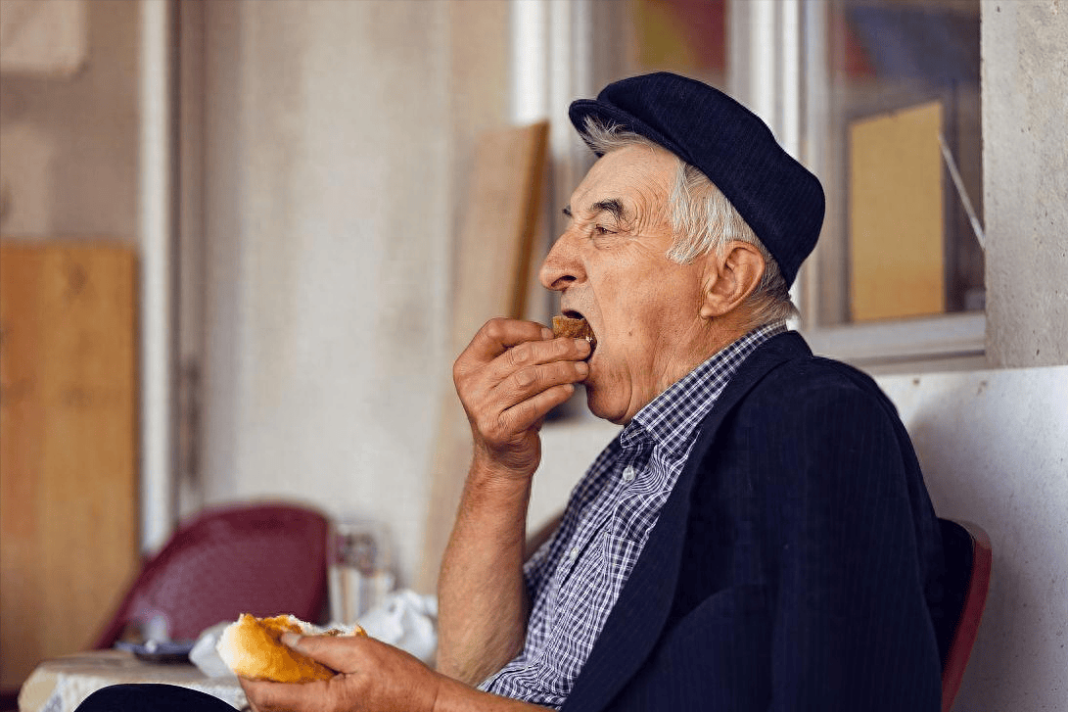Before reading this article, we sincerely invite you to click “Follow”, which will not only make it convenient for you to discuss and share, but also provide you with more professional health knowledge, escorting your health, thank you for your support.
“Do you know? If you really don’t want heart disease, there are three types of food that you should avoid. It’s not a joking matter!”
Doctor Gu, smiling at the chatting old Mr. Li and old Mr. Wang, said in a tone loud enough for Aunt Lu passing by to overhear. Aunt Lu happened to be out for a walk, with keen ears and clear eyes, driven by curiosity, she walked closer to listen to what else Doctor Gu had to say.
Aunt Lu is sixty-six years old, retired as a high school history teacher, well-versed in local customs and habits, and always has her own unique insights on health and wellness.
“Doctor Gu, which three types of food are you talking about? Can you elaborate?” Aunt Lu asked with a smile while adjusting her hair bun. Doctor Gu is a kind-hearted doctor in the neighborhood, always talkative when it comes to medical issues.
He first pointed out the red meat that many elderly people like. Red meat contains high saturated fat and cholesterol, overeating can lead to elevated blood lipids, gradually reducing blood vessel elasticity, posing a chronic harm to the heart.
Next, he mentioned bakery products such as cakes and cookies. These foods often contain large amounts of sugar and trans fats, which not only cause weight gain but also increase the risk of heart disease.
Mr. Wang listened with great interest by the side, he usually loves eating cookies the most. Upon hearing what Doctor Gu said, Mr. Wang began to consider whether he should change this habit.
These foods have a high sodium content, excessive consumption can lead to high blood pressure, thereby increasing the risk of heart disease. He especially mentioned a patient case, who developed hypertension due to long-term consumption of large amounts of processed meat products, eventually leading to heart disease.
The elderly friends present all nodded involuntarily, and Aunt Lu also pondered whether she needs to make adjustments to her diet habits.
As the sky turned dark, the topic shifted from the hazards of food to how to maintain health through proper diet. Mr. Wang raised a question: “Doctor Gu, besides avoiding these foods, what else can we do to protect our hearts?”
Doctor Gu smilingly proposed some suggestions, including eating more vegetables and whole grains, engaging in moderate exercise, and regularly undergoing physical check-ups.
Returning from the walk, Aunt Lu mulled over Doctor Gu’s words. She found these suggestions not difficult, just requiring a bit of adjustment in her lifestyle. Once back home, she decided to start adjusting her diet from tomorrow, reducing the intake of red meat and bakery products while adding more vegetables and fruits.
Aunt Lu also thought of her neighbor, Aunt Chen, who has hypertension problems. Aunt Chen should be very interested in this topic.
She specifically invited Aunt Chen over to her home, prepared some low-fat foods, and relayed Doctor Gu’s advice while they ate. This exchange not only made Aunt Lu and Aunt Chen realize the importance of a healthy diet but also deepened their friendship.
Aunt Lu decided to launch a health diet initiative in the community, hoping to help more elderly people understand how to prevent heart disease through diet.
Doctor Gu reiterated the hazards of red meat, bakery products, and processed meat products, emphasizing the importance of high-fiber foods such as legumes, whole grains, and nuts. He explained that these foods can help lower cholesterol and improve heart health.
Seeing everyone’s enthusiasm, Aunt Lu felt very pleased. She believed that such activities could truly help everyone, making the elderly in the community pay more attention to their diet and health.
Residents began to participate in the healthy diet action, their interactions becoming more frequent, sharing their dietary changes and health progress. Aunt Lu felt that these changes were not just dietary but also a shift in attitude towards life.
For those residents who initially changed their diet solely for health, have their heart health truly improved? After some effort, many people saw significant improvements in their blood pressure, blood lipids, and other indicators, thus enhancing their quality of life.
This is not just a dietary revolution, but also a spiritual baptism, making everyone cherish and value their health more.
What are your thoughts on heart health? Feel free to discuss in the comments section!


